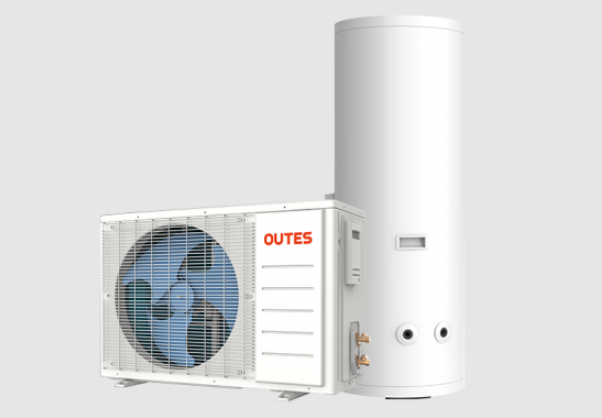How Does a Split System Heat Pump Water Heater Work?
A split system heat pump water heater is a highly efficient and eco-friendly way to provide hot water for residential and commercial use. Utilizing innovative technology, this system extracts heat from the surrounding air to heat water, offering significant energy savings compared to traditional water heaters. In this article, we'll delve into the workings of a split system heat pump water heater to understand how it operates and its benefits.
A Split System Heat Pump Is Basically an Air Conditioner
Everybody is familiar with air conditioners. Whether you've got window shakers or a big central system, you know that if you turn down the thermostat, the house cools down. That's because the refrigerant cycle taking place inside the air conditioner is moving heat out of your home. The only difference between a split system heat pump and a regular air conditioner is the ability to run backwards. So, instead of just taking the heat out, a split system heat pump can bring heat back inside when the weather turns colder. This versatility allows a homeowner more effective control over their home comfort.
Understanding the Components
A split system heat pump water heater consists of two main components: an outdoor unit and an indoor tank. The outdoor unit contains a compressor and a heat exchanger, while the indoor tank serves as a reservoir for the heated water.
1. Heat Extraction
The process begins with the outdoor unit extracting heat from the ambient air. Even in cold weather, there is still heat present in the air, albeit at lower temperatures. The heat pump's compressor pressurizes the refrigerant, raising its temperature. The refrigerant then flows through the outdoor coil, where it absorbs heat from the air.
2. Heat Transfer
Once the refrigerant has absorbed heat from the air, it is then pumped into the indoor unit through a series of pipes. Inside the indoor unit, the refrigerant passes through a heat exchanger coil submerged in the water tank. As the hot refrigerant circulates through the coil, it transfers its heat to the water, raising its temperature.
3. Water Heating
The heated water is stored in the tank until it is needed. A backup heating element, typically electric, may be present to ensure hot water availability during periods of high demand or when ambient temperatures are too low for the heat pump to operate efficiently.
4. Efficiency and Energy Savings
One of the key advantages of a split system heat pump water heater is its high efficiency. By utilizing ambient heat from the air, rather than generating heat directly, these systems can achieve impressive energy savings. In fact, they can be up to three times more efficient than conventional electric water heaters, leading to lower energy bills and reduced carbon emissions.
5. Environmental Benefits
In addition to cost savings, split system heat pump water heaters offer significant environmental benefits. By relying on renewable heat sources, such as the air, rather than fossil fuels, they help reduce greenhouse gas emissions and lessen dependence on non-renewable energy sources. This makes them a sustainable choice for environmentally conscious consumers.
Maintenance and Considerations
While split system heat pump water heaters are generally low-maintenance compared to traditional water heaters, they still require periodic upkeep to ensure optimal performance. This may include regular inspections, filter cleaning or replacement, and occasional servicing of the compressor and other components.
Conclusion
In conclusion, a split system heat pump water heater operates by extracting heat from the surrounding air and transferring it to water for domestic use. This innovative technology offers high efficiency, energy savings, and environmental benefits compared to conventional water heating systems. With proper maintenance, it can provide reliable hot water for years to come, making it a smart choice for both residential and commercial applications.
None



Comments